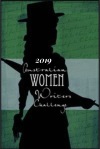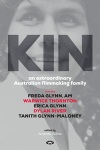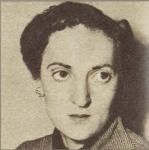One of the most appealing things about Rachel Matthews’ third novel, Never look desperate, is that it features some decent men. In this #metoo era, which differs little from what came before, there’s plenty of fiction which shows men in less than stellar light. And that’s fair enough. One of the reasons I read fiction is to expand my understanding of the issues I care about. I can feel along with the so-called sad girl stories, and applaud the angry feminist ones. However, most men I know, like most women I know, are decent human beings trying to live good, fulfilled lives. And this, essentially, is the subject matter of Matthews’ novel.
Never look desperate follows three main characters, in alternating, third-person chapters. These characters are 49-year-old Bernard, 54-year-old Minh, and Bernard’s recently widowed 70-year-old mother Goldie. It is set in Melbourne, immediately post-pandemic. People are starting to get out and about again, but the pandemic’s shadow lingers in the background. Bernard and Minh are single, lonely, and seeking connection.
Bernard, a photographer who works at Officeworks, dearly misses his father Marvin, who had died 12 months ago. He also wears a locket encasing some of his dead-ex-wife’s ashes around his neck. He had loved his wife, and the fact that they were divorced when she died, does not lessen his grief. With both gone, he feels that from now, “the world would keep taking pieces of him”, but he’s surviving – just. The last time he’d had sex, on a Tinder date, “it was all over in one minute and 10 seconds – the same time it took him to microwave porridge”.
Vietnamese-born Minh, who came to Australia by boat when she was seven, works at the Kino cinema complex. She has never married, though has had her share of boyfriends. She loves her mother, but rarely sees her because her evangelical step-father had kicked her out long ago. We first meet her as she wakes, gasping, from “night terrors”, and we soon learn that she carries trauma from the loss of her father on that boat from Vietnam and from the racism she experienced as the only Vietnamese kid at school.
Goldie is more complicated. She’s “alternative”, and uncompromising. She is implicated in her husband’s death, though this is not a legal issue in the novel, because she had slowly replaced his blood pressure tablets with alternative medicines. She has a new lover, but she’s prickly – and grief and ageing are not making her any easier to be with. However, Franz is hanging in there. As she does with the other characters, Matthews nails her with sentences like this:
Goldie didn’t really have friends. Her old workmates from a community centre in Collingwood, found her difficult to work with, but we were grateful when she wrestled with management for better conditions.
She is the most difficult character for readers to identify with, but she has her own baggage, including a tough upbringing, during which her mother would lock her in a dark laundry, aka “the Thinking Room”.
“the world was different now” (Goldie)
So, we have three people who are all grieving or have suffered losses in their lives. Bernard and Minh meet early on via the dating app Tinder, and through the rest of the novel there’s a rom-com type tension regarding whether they will overcome their anxieties and get together. The novel’s other main tension concerns whether there will be a rapprochement between Goldie and Bernard, whose upbringing had been difficult with such an inflexible, “alternative” mother, and who believes that she does not grieve his beloved father. We though know better. (Marvin, whom we only know by hearsay, is one of the book’s joys.)
Now this might all sound ho-hum, but it’s definitely not, for a few reasons. One is the humour. Matthews captures the place and time, and her characters, with light satire that preserves their humanity while letting us laugh at the things they and we do in these strange times of ours. She hones in on some of the absurdities and pretensions of our times, without condemning. After all, who knows who will have the last laugh! That said, the IKEA and cruise-ship scenes are priceless.
Another reason is the characterisation. These characters are real. We know them, and, even if we are not exactly like them, we have surely suffered similar sadnesses and insecurities. This week, for example, we lunched with a recently widowed friend, and as I greeted her with a hug, she said “oh, a lovely hug”. One of the points Matthews makes so eloquently in this novel is the longing “to be touched” in those left alone – especially during the pandemic. So, there’s genuine pathos here, too, as we watch our characters struggle, hard, to beat back their justifiable fears and reconnect.
Related to the characterisation is the setting. Melburnians will love all the grounding references to places, products and businesses that carry signals for those who know, but are self-explanatory enough for those who don’t. The novel is also peppered with pop-culture references, particularly to music but also to film and TV shows, which will be more universal for the generations involved.
Then there is the quiet wisdom. Bernard’s dad had told him once that “a sad day is only a day”. This is not to minimise intense grief, of course, but it puts into perspective the little ups and downs that we can let get on top of us if we don’t take care. Matthews shows the various kindnesses people meet through life, often in unexpected places, and also that online-friendships, like Minh has with Suzy in New York, are real and sustainable.
Goldie recognises early in the novel that “the world was different now. She just had to find her way”. By novel’s end, our characters are finding their way. The future isn’t guaranteed, but they are on their way with a little more connection in their lives. What did E.M. Forster say in Howard’s End? “Only connect”. Yet again, we see his wisdom – and Matthews has given it to us in a funny, warm-hearted novel that is a real pleasure to read.
Lisa (ANZLitLovers) also enjoyed this novel.
Rachel Matthews
Never look desperate
Melbourne: Transit Lounge, 2023
297pp.
ISBN: 9780645565393
(Review copy courtesy Transit Lounge, via Scott Eathorne, Quikmark Media)

 Although it is quite a traditional memoir, style-wise, Jocelyn Moorhouse’s Unconditional love: A memoir of filmmaking and motherhood is particularly interesting for a couple of reasons. Firstly, she’s an artist who had a happy childhood. Who knew that could happen? Secondly, while most memoirs focus on one aspect of the writer’s life – such as their career (sport, for example), their trauma (childhood abuse, perhaps), their activity (like travel) – Moorhouse intertwines two ostensibly distinct parts of her life, her filmmaking career and her life as a mother.
Although it is quite a traditional memoir, style-wise, Jocelyn Moorhouse’s Unconditional love: A memoir of filmmaking and motherhood is particularly interesting for a couple of reasons. Firstly, she’s an artist who had a happy childhood. Who knew that could happen? Secondly, while most memoirs focus on one aspect of the writer’s life – such as their career (sport, for example), their trauma (childhood abuse, perhaps), their activity (like travel) – Moorhouse intertwines two ostensibly distinct parts of her life, her filmmaking career and her life as a mother. Jocelyn Moorhouse
Jocelyn Moorhouse It’s a curious thing, isn’t it? When I write my book reviews, I spend very little time on the content, focusing mostly on themes, style and context, but when I write up festivals and other literary events I find it hard to be succinct about the content. Perhaps this is because I can always go back to the book to check something, while these events are fleeting. Once they’re gone, they’re gone, so I want to capture all I can. Of course, many events these days end up as podcasts, but you can’t be sure how long they’ll be there. Anyhow, that’s my excuse and I’m sticking to it …
It’s a curious thing, isn’t it? When I write my book reviews, I spend very little time on the content, focusing mostly on themes, style and context, but when I write up festivals and other literary events I find it hard to be succinct about the content. Perhaps this is because I can always go back to the book to check something, while these events are fleeting. Once they’re gone, they’re gone, so I want to capture all I can. Of course, many events these days end up as podcasts, but you can’t be sure how long they’ll be there. Anyhow, that’s my excuse and I’m sticking to it … Pomeranz began, it seemed to me, by wanting to focus more generally on book-to-film adaptations, but Beresford focused, not surprisingly I suppose given the session topic, on The women in black/Ladies in black.
Pomeranz began, it seemed to me, by wanting to focus more generally on book-to-film adaptations, but Beresford focused, not surprisingly I suppose given the session topic, on The women in black/Ladies in black.









